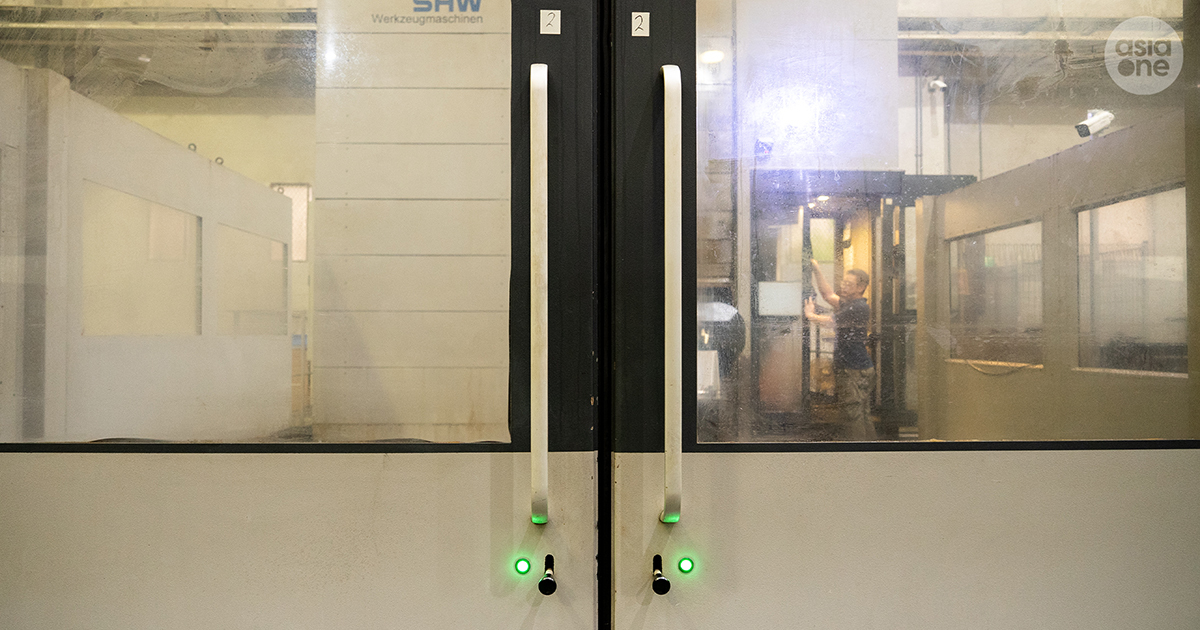Combustible dust, high-risk machinery: MOM introduces more measures to strengthen workplace safety in manufacturing


 PUBLISHED ONNovember 29, 2024 3:15 AMBYLim Kewei
PUBLISHED ONNovember 29, 2024 3:15 AMBYLim KeweiFrom Jan 1, 2025, manufacturers and suppliers dealing with industrial machinery as well as combustible dust will have to comply with enhanced workplace safety and health (WSH) measures, said the Ministry of Manpower (MOM) on Friday (Nov 29).
This follows recommendations put forward by the inquiry committee probing the Tuas explosion which killed three workers and injured seven others in February 2021.
According to the committee's findings, the unsafe use of a mixer machine had caused it to explode, igniting the combustible potato starch powder used in the workshop and leading to subsequent flash fires.
To prevent similar incidents, the Multi-Agency Workplace Safety and Health Taskforce (MAST) will introduce enhanced control measures to ensure the safe use of combustible dust — materials which can disperse in the air and ignite when in contact with a heat source.
Manufacturers and suppliers must label associated hazards on packages or containers of combustible dust and communicate to workers on safe use.
For organic combustible dust such as flour or starch, labels are not needed for packages or containers weighing below 25kg.
Additionally, manufacturers handling specified combustible dust at or above the stipulated threshold quantity will also need to notify MOM and building owners or landlords.
During a media visit to local manufacturer Chung Shan on Thursday (Nov 28), AsiaOne was shown the control measures already adopted by the company, which includes the newly announced warning labels that were pasted on individual packages of combustible dust, mixing drums and around the storage area.

The company has also installed explosion-proof lighting and uses a new explosion-proof vacuum cleaner to help with the safe removal of dust particles.
Managing director Sussie Sarah Tan said that the company believes in investing in the safety of workers.
"When workers have a good, safe environment to work in, they are happy workers and they feel secure," she added.
Another enhanced measure is expanding the list of higher-risk machinery covered in the WSH Act, which requires manufacturers and suppliers of such machinery to ensure it is safe to use, and provide information on safe use.
Under the Act, anyone who installs or modifies such machinery and equipment must ensure any installation or modification does not compromise the safe use of the machinery.
The three classes of higher-risk machinery to be added to the list are:


"Singapore has over 7,000 manufacturing workplaces, with many of them operating high-risk machinery and managing supplies of combustible dust," said Minister of State for Trade and Industry Alvin Tan, who is also a member of MAST.
"The enhanced measures we introduced will hold stakeholders throughout the supply chain accountable and ensure our workers remain safe."
MAST Chairman and Senior Minister of State for Manpower Zaqy Mohamad added: "Combustible dust and industrial machinery can pose significant risks to workers, as seen in the 2021 Stars Engrg explosion.
"We will conduct checks to ensure compliance with these measures. Companies can better prepare for the new requirements by tapping on the resources available on the WSH Council's website."
According to the WSH report, there was one death and 59 major injuries in the manufacturing sector in the first six months of 2024.
In 2023, the manufacturing sector recorded five deaths and 150 workplace major injuries, with 52 incident type being machinery incidents.
[[nid:708994]]
lim.kewei@asiaone.com